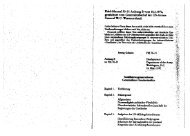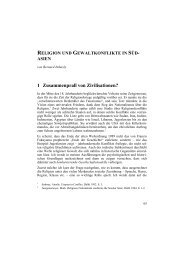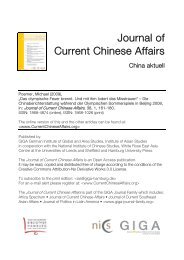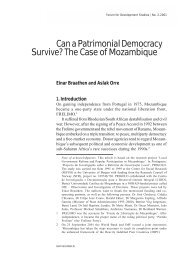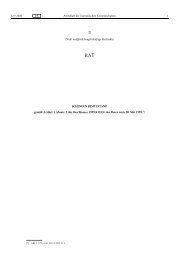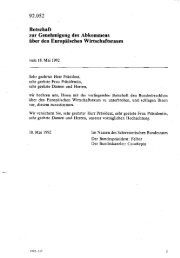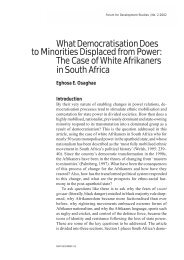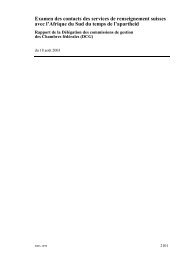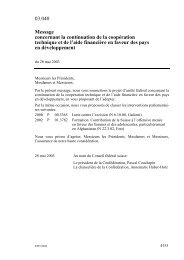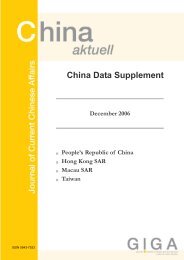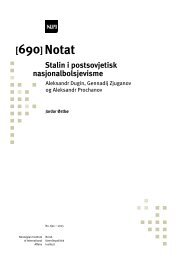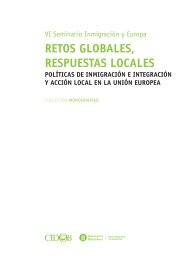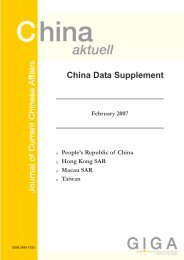Prophetic Politics
Prophetic Politics
Prophetic Politics
You also want an ePaper? Increase the reach of your titles
YUMPU automatically turns print PDFs into web optimized ePapers that Google loves.
PROPHETIC POLITICS<br />
not work. <strong>Prophetic</strong> politics cannot entirely rely on the Judeo-Christian tradition and<br />
its beliefs. To gain a secular audience, the narrator must use civil religion as the sacred<br />
story that his narrating relies upon. Jean-Jacques Rousseau’s (1997) or even<br />
Robert Bellah’s (1967) ideas of the essence of civil religion make the mistake of portraying<br />
it as a unified concept. A modern society has such a complex structure that<br />
it is impossible to imagine that one single vision of the ‘American way of life’ could<br />
serve as the one civil religion that goes along with the official religion itself.<br />
The study of civil religion has, according to Ira Chernus, imprisoned itself. It is<br />
unimportant to study whether a citizen believes or not but one should rather focus<br />
on precisely how the citizen defines the object of his belief. Either there are multiple<br />
civil religions or the concept itself should be seen as a wide and dynamic field<br />
of beliefs in interaction with each other. (Chernus: a and b) One version of public<br />
religion is not enough, and one sacred story is not sufficient to build an identity either.<br />
The key lies in combining multiple sacred stories and interconnecting them.<br />
The end result of this for the prophetic politician may yet still not be a unified version<br />
of a civil religion, but if he can manipulate sacred stories, he might be able to<br />
produce a dogma of public religion dynamic enough to fit into the world-view of the<br />
majority of the citizens. Studying the construction of civil religion by narratives is<br />
beneficial because the story logic and the creation of storyworlds about the essence<br />
of the American Way of Life give the whole concept a more dynamic form. Since the<br />
storyworld is to a large extent created by the reader/listener, narratives allow different<br />
ideas about the American Way of Life to fit within the boundaries of a storyworld<br />
than a more traditional concept of civil religion can accommodate. Thus I<br />
suggest that the only way of creating a truly inclusive civil religion is to narratively<br />
craft it so that its limits, contents and boundaries cannot be strictly defined even if<br />
they can always be communicated by rich storytelling. Then each citizen could follow<br />
the most pleasing storyline into the web of stories. This civil religion would not<br />
be unifying in the strict sense of the word, but it would give an illusion of unification.<br />
That is, each citizen could construct a civil religious storyworld to his or her own liking<br />
and, due to the ambiguousness involved in the storytelling, imagine that others<br />
actually think of the civil religion in the same terms as s/he does. The American Way<br />
of Life should not be narrated in detail, but its characteristics should be vaguely described<br />
in order to allow people to design it as they please.<br />
Mircea Eliade notes that millenialistic movements ‘are always begun by strong religious<br />
personalities of the prophetic type, and are organized or expanded by politicians<br />
for political ends.’ (1963: 70–71) I argue, nevertheless, that in the case of the<br />
creation of a civil religion, the order is reversed. A politician can incite a revolutionary<br />
political movement and act as a prophetic leader if s/he tells stories that are effective<br />
enough. There is no need for religious personality in the equation, but the<br />
politician can use and exploit religion for his earthly purposes. De Tocqueville noted<br />
Perspectives Vol. 167, No. 2 2009<br />
111



